This article was co-authored by Eric Baron, DO. Dr. Eric P. Baron is a staff ABPN (American Board of Psychiatry and Neurology) board certified Neurologist and a UCNS (United Council for Neurologic Subspecialties) Diplomat board certified in Headache Medicine at Cleveland Clinic Neurological Institute, Center for Neurological Restoration – Headache and Chronic Pain Medicine, in Cleveland, Ohio. With over 15 years of experience practicing medicine, he specializes in helping patients with headaches, migraines, and facial pain. Dr. Baron holds a BS in Biology from the University of Toledo and a DO from The Ohio University Heritage College of Osteopathic Medicine. Following his medical education, he completed his neurology residency and fellowship in headache medicine at Cleveland Clinic. Dr. Baron has authored publications in journals such as The Journal of Headache and Pain and was named one of “America’s Top Physicians."
There are 13 references cited in this article, which can be found at the bottom of the page.
This article has been viewed 90,469 times.
Hand shaking can hinder your day-to-day life, but there are ways to control it. Hand shaking may be mild, moderate, or sever. Mild hand tremors are often caused by lifestyle choices can be reduced through simple lifestyle changes, such as getting more sleep and cutting back on caffeine or nicotine. If you are suffering from more severe hand tremors, see your doctor to get a diagnosis and discuss your options, as these are more often a symptom of a medical issue. In some severe cases, where it's difficult to do things like hold a cup, medication, therapy, or surgery may help to calm your shaking hands.
Steps
Calming Minor Hand Shaking
-
1Get at least 7 hours of sleep a night to prevent tremors. Noticeable hand tremors are likely to occur if you get too little sleep at night.[1] Sleep helps to regulate your automatic nervous system, as well as your heartbeat and blood pressure, keeping body tremors in check. Get to bed early enough to get at least 7 hours of sleep each night, and remove distractions to ensure that you sleep soundly.[2]
- Set a strict wake-up time for yourself every morning to help regulate your circadian rhythm and improve your sleep quality. [3]
-
2Avoid alcohol, which can worsen hand tremors in the long run. In the short term, alcohol can reduce your inhibitions and calm your nervous hand tremors. Once the alcohol wears off, however, your hand shaking is likely to become worse. Consume alcoholic drinks sparingly, if at all, to keep your tremors to a minimum.[4]
- Using alcohol regularly to calm hand tremors can also lead to alcoholism over time.
- Alcohol will usually only relieve hand tremors for about a half hour before wearing off.[5]
Advertisement -
3Cut back on stimulants like caffeine and nicotine. Avoid drinking tea, coffee, cola, or other caffeinated drinks if you have recurring hand tremors.[6] Opt for caffeine-free beverages instead, such as water and herbal tea. Avoid smoking, vaping, and chewing tobacco, as well, as nicotine can cause similar effects on the body.[7]
- Talk to your doctor about your options for quitting smoking, vaping, or chewing tobacco, such as using nicotine patches, medication, or hypnosis.
- Energy drinks may also cause tremors and should be avoided.
-
4Practice stress-fighting activities to reduce your hand shaking. Minor hand shaking can be normal for some people during stressful situations, such as public speaking. Hand tremors caused by anxiety or stress are very common and may be embarrassing and distracting. Control these tremors by doing activities that help your mind and body relax. These may include:[8]
- Deep breathing exercises, where you breathe in slowly through your nose and exhale slowly through your mouth.
- Yoga, either on your own or in a class with an instructor.
- Mindful meditation, where you focus on your body, thoughts, and feelings to achieve a feeling of inner peace.[9]
- Aromatherapy, where you use essential oils to ease stress and evoke feelings of relaxation.
- Improving your living space to make it more comfortable and relaxing.
- Listening to music to reduce stress and anxiety.
-
5Eat foods rich in vitamin B1 to reduce tremors. A vitamin deficiency can cause body tremors, especially a lack of vitamin B1, also known as thiamine.[10] To get this vitamin naturally, try to eat more whole grains, green vegetables, eggs, brown rice, potatoes, pork, and liver. You can also ask your doctor about taking vitamin B1 supplements for a boost.[11]
- Take a daily multivitamin to boost your levels of all essential vitamins and minerals.
Treating Severe Hand Tremors
-
1See your doctor to determine the cause of your shaking hands. If your hand shaking interferes with your daily activities or gets worse over time, see your doctor as soon as possible.[12] Tell your doctor about any other symptoms you may be experiencing. Tell your doctor if there is any history of hand shaking or tremor-causing illnesses like Parkinson's in your family, as non-occupational illnesses and disorders may be hereditary.[13]
- If your doctor suspects that you may be suffering from an illness like Parkinson's disease or multiple sclerosis, they will likely send you to a specialist for testing.
- Tell your doctor if you are taking any medications that may be causing your hand tremors. This may include mood stabilizers, seizure medications, bronchodilators, and handheld or nebulizing bronchodilating solutions.[14]
- Your doctor probably won't prescribe any specific treatment for your hand shaking if the tremors are mild and not connected to another medical condition.
-
2Visit a mental health professional to treat a psychogenic tremor. Hand tremors may sometimes be caused by psychological disturbances or conditions like depression or PTSD. Tell your doctor about any stress or mental health issues you have experienced in conjunction with your tremors. Ask if they can refer you to a psychiatrist or another mental health professional who can further assess your condition. [15]
- Therapy sessions are the best way to diagnose and treat any possible psychological causes for your hand shaking.
- Psychogenic tremors can occur in the hands or throughout the entire body.
-
3Go for physical therapy to help improve your muscle control. If your hand shaking is interfering with your ability to do regular tasks, ask your doctor if they can refer you to an occupational therapist for physical therapy. During this treatment your therapist will guide you through exercises designed to build strength and improve function in your hand muscles. Over time this may limit your hand tremors caused by illness or physical disorders and allow you to engage in daily activities with more ease.
- Physical therapy may not stop your hand shaking completely, but it will help you build the skills to cope with your tremors and work around them.
- Physical therapy is also not useful for treating shaking due to issues like anxiety and caffeine intake.
-
4Talk to your doctor about medications to control your hand tremors. While some types of hand tremors may not be cured, your doctor can help ease this condition with certain prescription drugs. Ask your doctor what types of medications, if any, would be right for you. In some cases, beta-blockers such as propranolol may be prescribed, or anti-seizure medications such as primidone.
- If you are suffering from a separate medical condition that is causing your tremors, disease-specific drugs may be prescribed.
- In cases where a clear cause for your tremors can't be found, your doctor may prescribe tranquilizers to help calm your body.
-
5Discuss Botox injections with your doctor as a possible treatment. Ask your doctor if getting Botox injected into your hands or fingers could help your particular hand tremors. For tremors without a known cause, this course of treatment is sometimes followed to "freeze" the nerves causing the shaking. Be sure to get your doctor's approval before seeking this treatment, as it does not work for all cases.[16]
- Avoid this option if your tremors are minor, as Botox can cause weakness of the arms and fingers over time.
-
6Ask your doctor about surgery if your tremors are severe. In extreme cases, brain surgery performed on the thalamus can help to ease hand tremors. Talk to your doctor about this option and ask about the risks involved in undergoing such a procedure. With brain surgery, possible side effects include speech problems, weakness, and a general loss of sensation.[17]
- This is typically only recommended as a last resort if your tremors are debilitating. Be sure to weigh the potential risks with the possible benefits for your specific circumstances.
Expert Q&A
-
QuestionWhat causes shakiness?
 Eric Baron, DODr. Eric P. Baron is a staff ABPN (American Board of Psychiatry and Neurology) board certified Neurologist and a UCNS (United Council for Neurologic Subspecialties) Diplomat board certified in Headache Medicine at Cleveland Clinic Neurological Institute, Center for Neurological Restoration – Headache and Chronic Pain Medicine, in Cleveland, Ohio. With over 15 years of experience practicing medicine, he specializes in helping patients with headaches, migraines, and facial pain. Dr. Baron holds a BS in Biology from the University of Toledo and a DO from The Ohio University Heritage College of Osteopathic Medicine. Following his medical education, he completed his neurology residency and fellowship in headache medicine at Cleveland Clinic. Dr. Baron has authored publications in journals such as The Journal of Headache and Pain and was named one of “America’s Top Physicians."
Eric Baron, DODr. Eric P. Baron is a staff ABPN (American Board of Psychiatry and Neurology) board certified Neurologist and a UCNS (United Council for Neurologic Subspecialties) Diplomat board certified in Headache Medicine at Cleveland Clinic Neurological Institute, Center for Neurological Restoration – Headache and Chronic Pain Medicine, in Cleveland, Ohio. With over 15 years of experience practicing medicine, he specializes in helping patients with headaches, migraines, and facial pain. Dr. Baron holds a BS in Biology from the University of Toledo and a DO from The Ohio University Heritage College of Osteopathic Medicine. Following his medical education, he completed his neurology residency and fellowship in headache medicine at Cleveland Clinic. Dr. Baron has authored publications in journals such as The Journal of Headache and Pain and was named one of “America’s Top Physicians."
Board Certified Neurologist Some common causes of shaky hands include excess caffeine, poor sleep, overexertion, and anxiety.
Some common causes of shaky hands include excess caffeine, poor sleep, overexertion, and anxiety. -
QuestionDoes hand shaking go away?
 Eric Baron, DODr. Eric P. Baron is a staff ABPN (American Board of Psychiatry and Neurology) board certified Neurologist and a UCNS (United Council for Neurologic Subspecialties) Diplomat board certified in Headache Medicine at Cleveland Clinic Neurological Institute, Center for Neurological Restoration – Headache and Chronic Pain Medicine, in Cleveland, Ohio. With over 15 years of experience practicing medicine, he specializes in helping patients with headaches, migraines, and facial pain. Dr. Baron holds a BS in Biology from the University of Toledo and a DO from The Ohio University Heritage College of Osteopathic Medicine. Following his medical education, he completed his neurology residency and fellowship in headache medicine at Cleveland Clinic. Dr. Baron has authored publications in journals such as The Journal of Headache and Pain and was named one of “America’s Top Physicians."
Eric Baron, DODr. Eric P. Baron is a staff ABPN (American Board of Psychiatry and Neurology) board certified Neurologist and a UCNS (United Council for Neurologic Subspecialties) Diplomat board certified in Headache Medicine at Cleveland Clinic Neurological Institute, Center for Neurological Restoration – Headache and Chronic Pain Medicine, in Cleveland, Ohio. With over 15 years of experience practicing medicine, he specializes in helping patients with headaches, migraines, and facial pain. Dr. Baron holds a BS in Biology from the University of Toledo and a DO from The Ohio University Heritage College of Osteopathic Medicine. Following his medical education, he completed his neurology residency and fellowship in headache medicine at Cleveland Clinic. Dr. Baron has authored publications in journals such as The Journal of Headache and Pain and was named one of “America’s Top Physicians."
Board Certified Neurologist If the shaky hands are affecting your ability to use your hands (such as write, eat, drink, etc.), there are medications that can help to lessen the tremors. Be sure to discuss the situation with your doctor!
If the shaky hands are affecting your ability to use your hands (such as write, eat, drink, etc.), there are medications that can help to lessen the tremors. Be sure to discuss the situation with your doctor! -
QuestionWhy is my hand suddenly shaking?
 Eric Baron, DODr. Eric P. Baron is a staff ABPN (American Board of Psychiatry and Neurology) board certified Neurologist and a UCNS (United Council for Neurologic Subspecialties) Diplomat board certified in Headache Medicine at Cleveland Clinic Neurological Institute, Center for Neurological Restoration – Headache and Chronic Pain Medicine, in Cleveland, Ohio. With over 15 years of experience practicing medicine, he specializes in helping patients with headaches, migraines, and facial pain. Dr. Baron holds a BS in Biology from the University of Toledo and a DO from The Ohio University Heritage College of Osteopathic Medicine. Following his medical education, he completed his neurology residency and fellowship in headache medicine at Cleveland Clinic. Dr. Baron has authored publications in journals such as The Journal of Headache and Pain and was named one of “America’s Top Physicians."
Eric Baron, DODr. Eric P. Baron is a staff ABPN (American Board of Psychiatry and Neurology) board certified Neurologist and a UCNS (United Council for Neurologic Subspecialties) Diplomat board certified in Headache Medicine at Cleveland Clinic Neurological Institute, Center for Neurological Restoration – Headache and Chronic Pain Medicine, in Cleveland, Ohio. With over 15 years of experience practicing medicine, he specializes in helping patients with headaches, migraines, and facial pain. Dr. Baron holds a BS in Biology from the University of Toledo and a DO from The Ohio University Heritage College of Osteopathic Medicine. Following his medical education, he completed his neurology residency and fellowship in headache medicine at Cleveland Clinic. Dr. Baron has authored publications in journals such as The Journal of Headache and Pain and was named one of “America’s Top Physicians."
Board Certified Neurologist Discussing your shaky hands with your doctor is important to make sure it is not thyroid related, a medication you may be taking, or even a disorder such as Parkinson’s disease.
Discussing your shaky hands with your doctor is important to make sure it is not thyroid related, a medication you may be taking, or even a disorder such as Parkinson’s disease.
References
- ↑ Eric Baron, DO. Board Certified Neurologist. Expert Interview. 13 September 2021.
- ↑ https://www.self.com/story/hands-shaking-causes
- ↑ https://www.self.com/story/the-sleep-mistake-making-you-tired-all-the-time
- ↑ https://www.mayoclinic.org/diseases-conditions/essential-tremor/diagnosis-treatment/drc-20350539
- ↑ https://www.npr.org/sections/health-shots/2014/04/07/298361607/involuntary-shaking-could-be-caused-by-essential-tremors
- ↑ Eric Baron, DO. Board Certified Neurologist. Expert Interview. 13 September 2021.
- ↑ https://www.nhs.uk/conditions/tremor-or-shaking-hands/#whats-normal
- ↑ https://www.prevention.com/health/a20512110/why-are-my-hands-shaking/
- ↑ Eric Baron, DO. Board Certified Neurologist. Expert Interview. 13 September 2021.
- ↑ https://patient.info/health/tremors-shaking
- ↑ https://www.ncbi.nlm.nih.gov/pmc/articles/PMC4772032/
- ↑ Eric Baron, DO. Board Certified Neurologist. Expert Interview. 13 September 2021.
- ↑ https://www.nhs.uk/conditions/tremor-or-shaking-hands/
- ↑ https://health.clevelandclinic.org/are-you-bound-to-get-shaky-ands-as-you-age/
- ↑ https://www.self.com/story/hands-shaking-causes
- ↑ https://patient.info/health/tremors-shaking/essential-tremor
- ↑ https://patient.info/health/tremors-shaking/essential-tremor
- ↑ https://www.nhs.uk/conditions/tremor-or-shaking-hands/
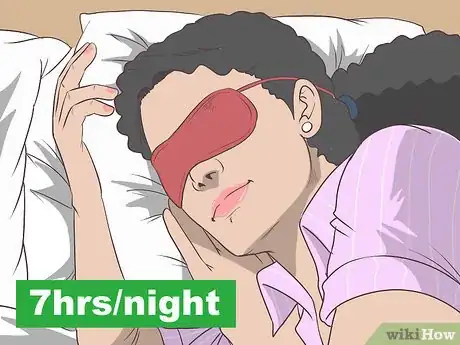

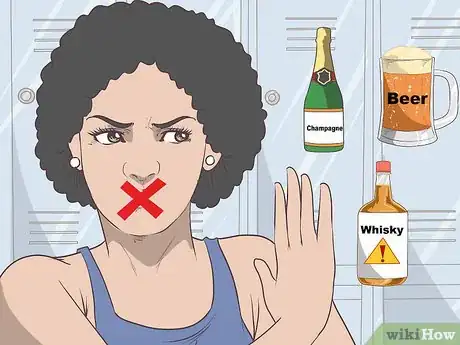

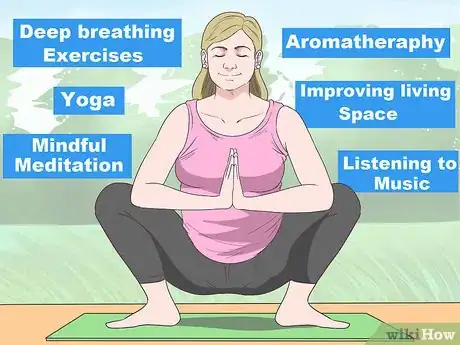
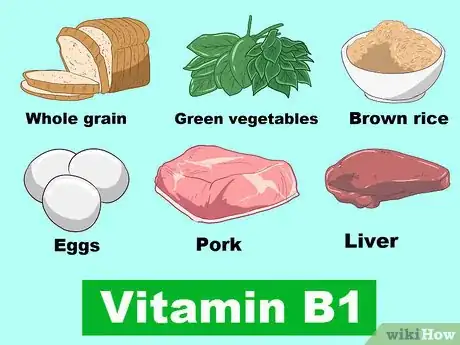
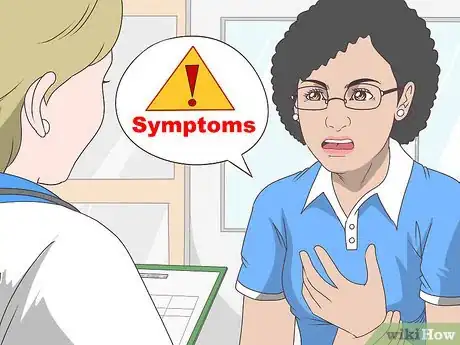
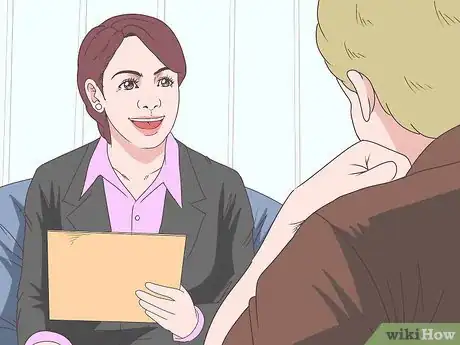
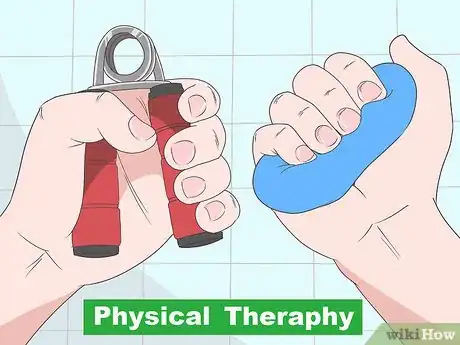
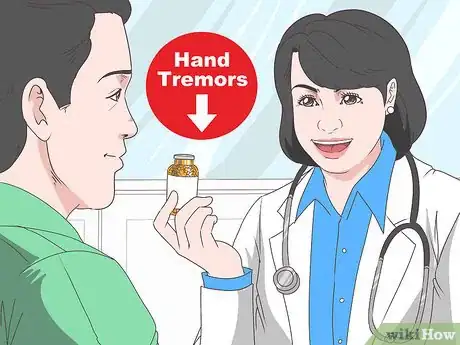
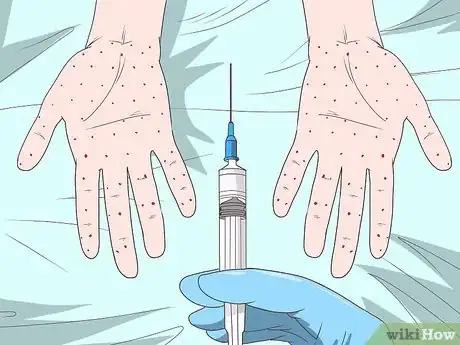
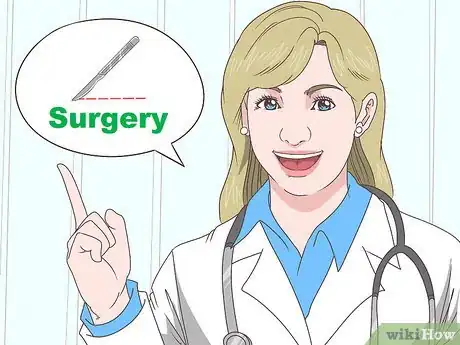
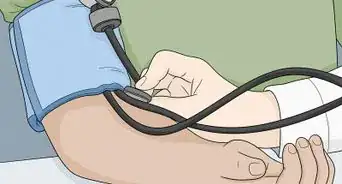



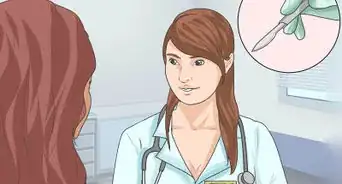
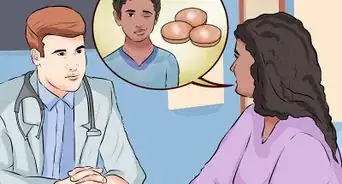
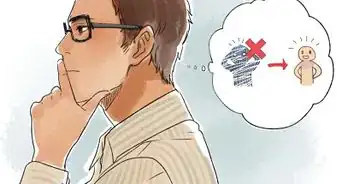
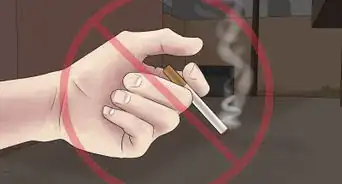

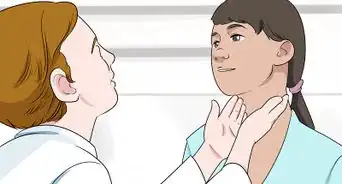
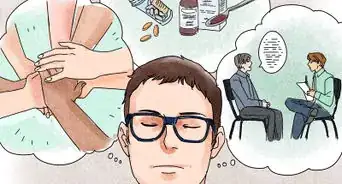







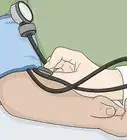


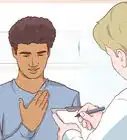



































Medical Disclaimer
The content of this article is not intended to be a substitute for professional medical advice, examination, diagnosis, or treatment. You should always contact your doctor or other qualified healthcare professional before starting, changing, or stopping any kind of health treatment.
Read More...